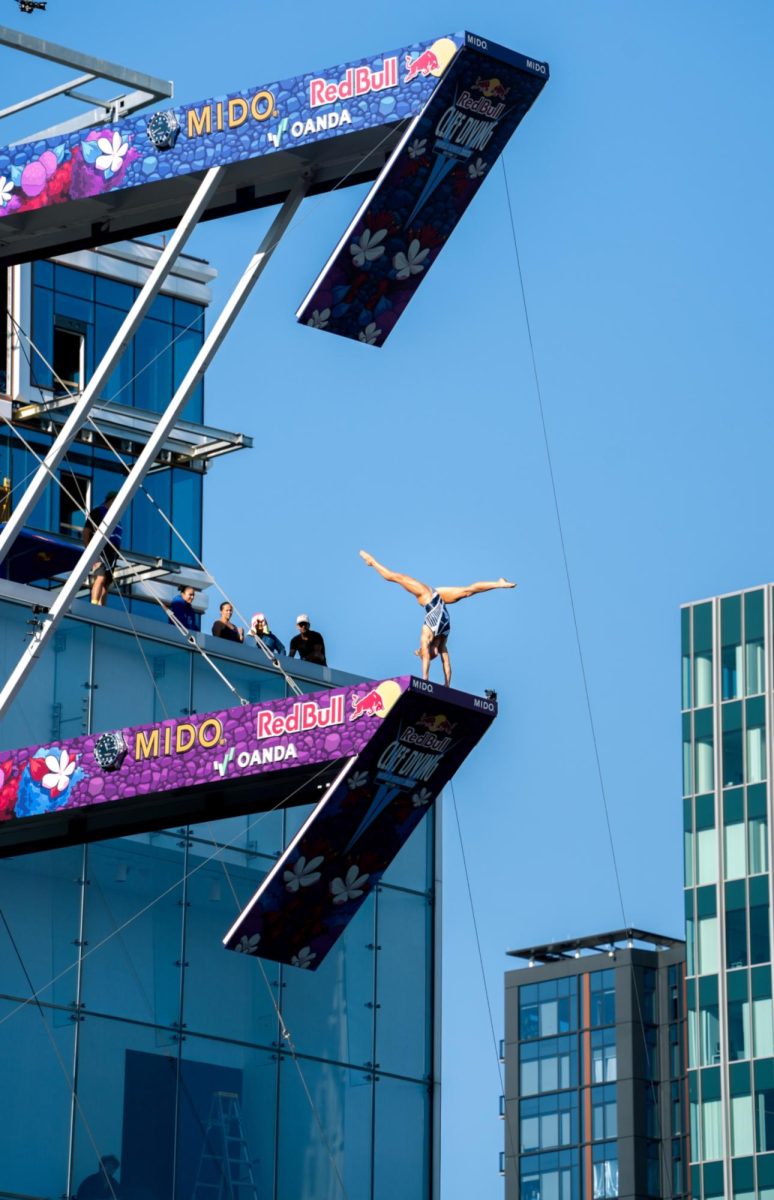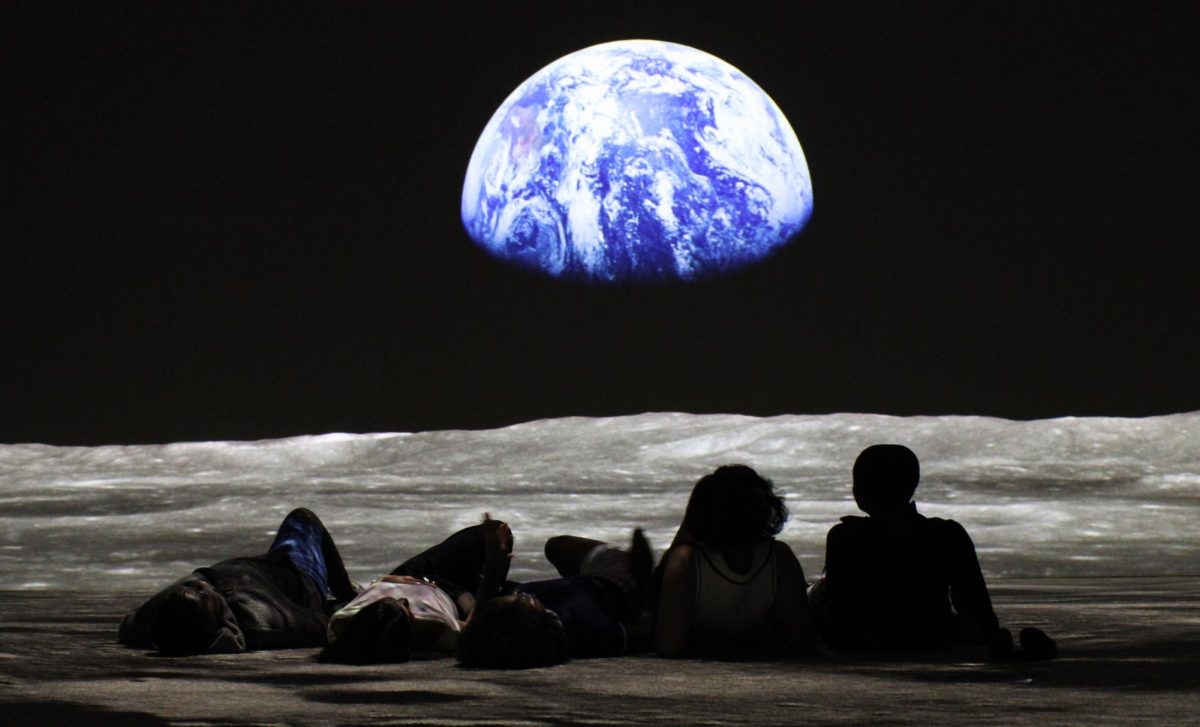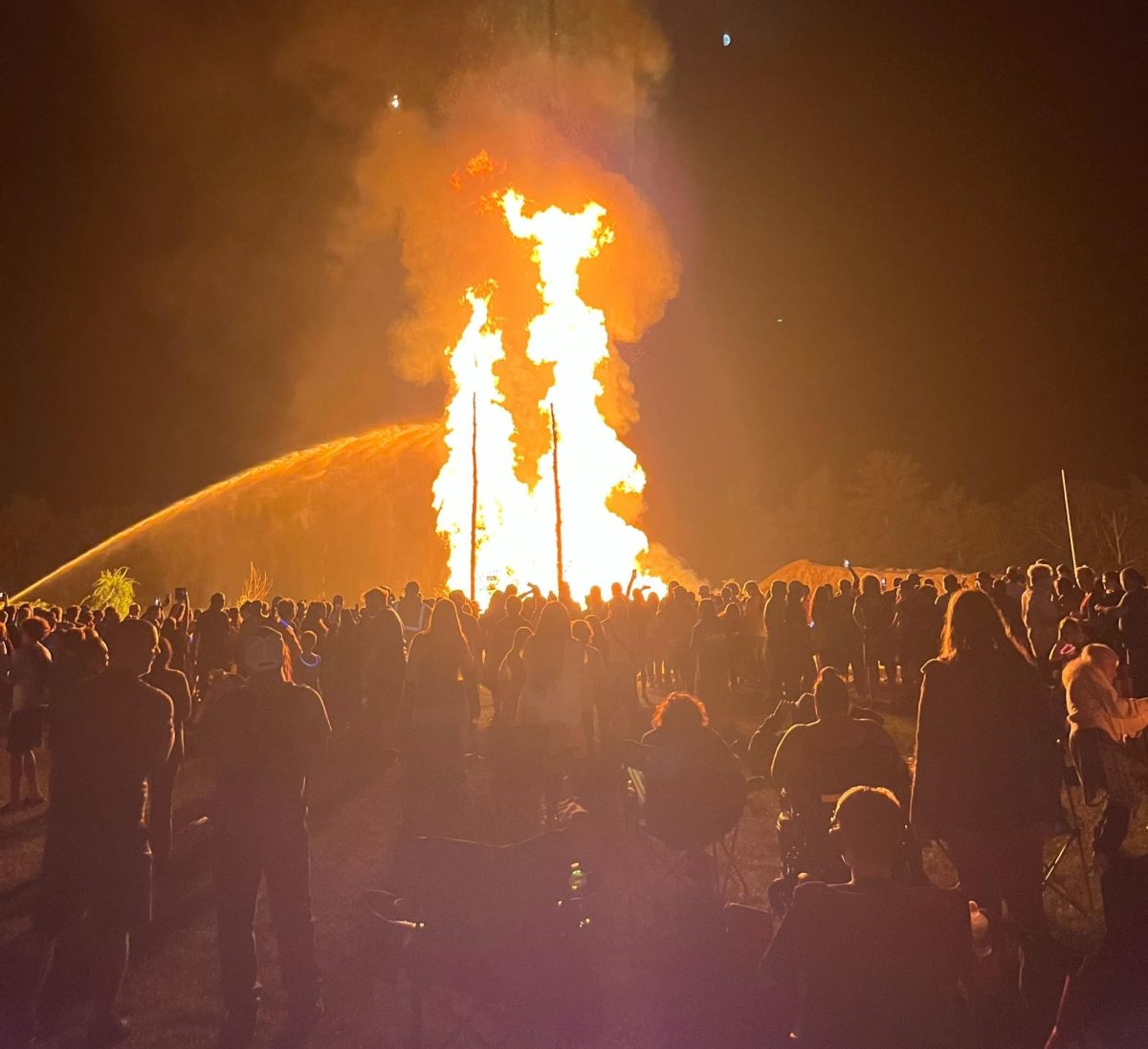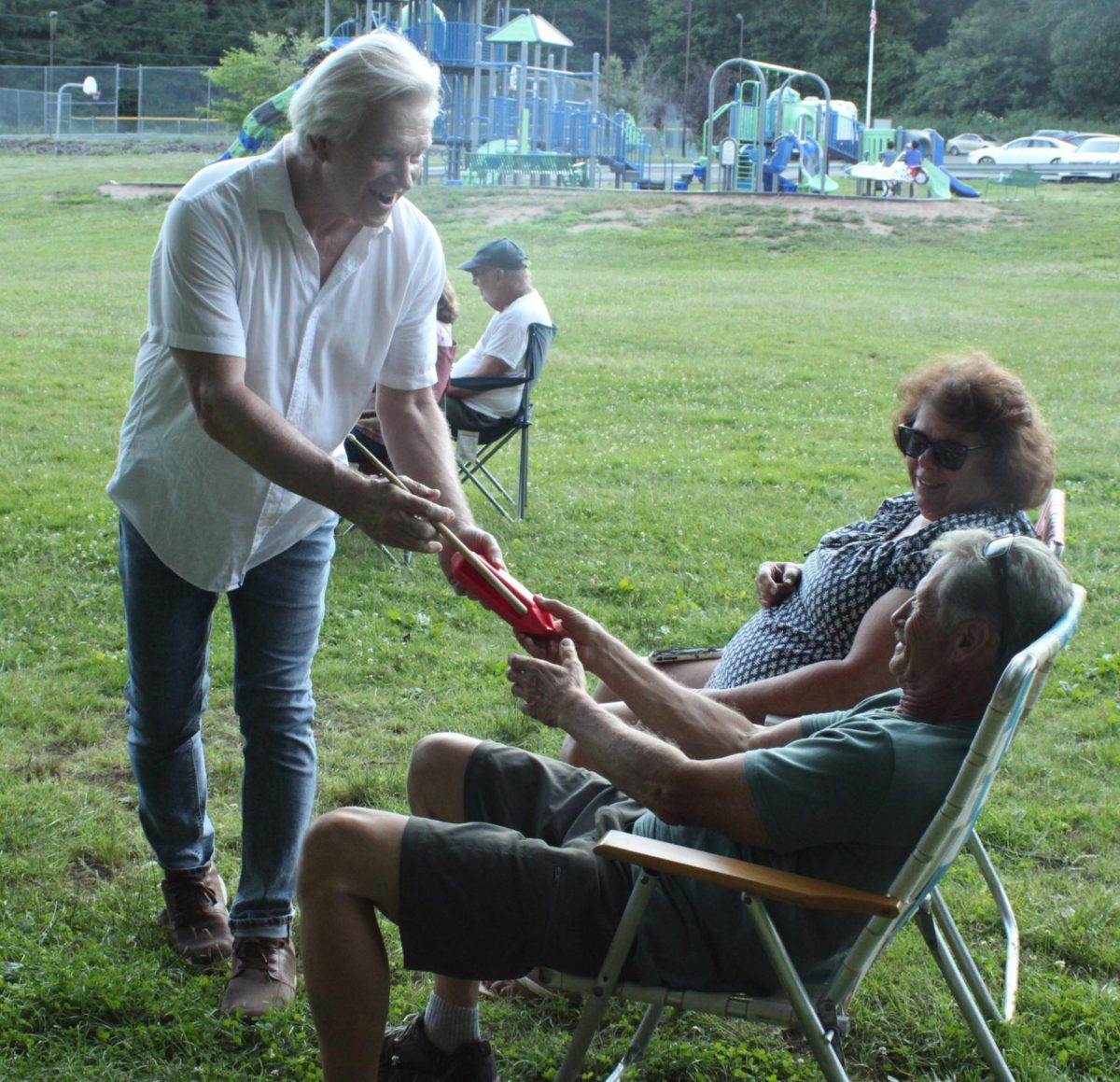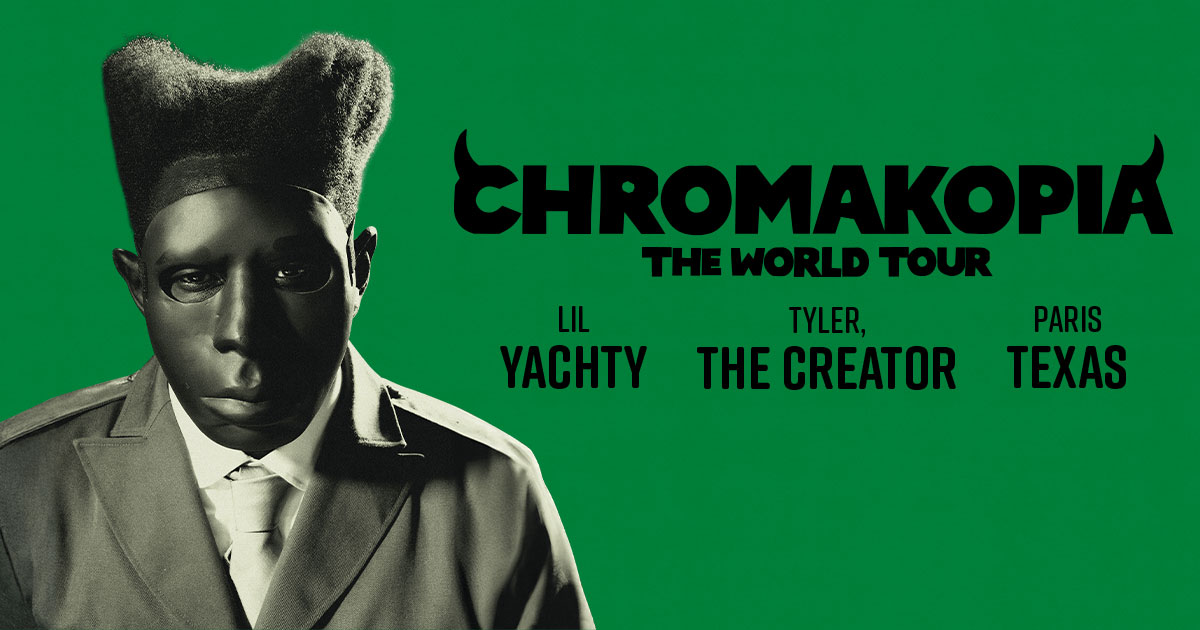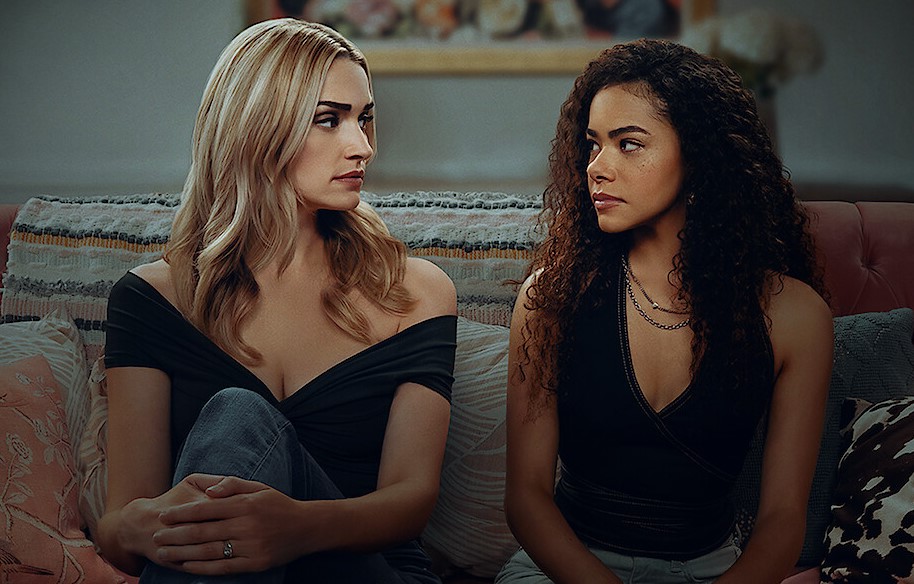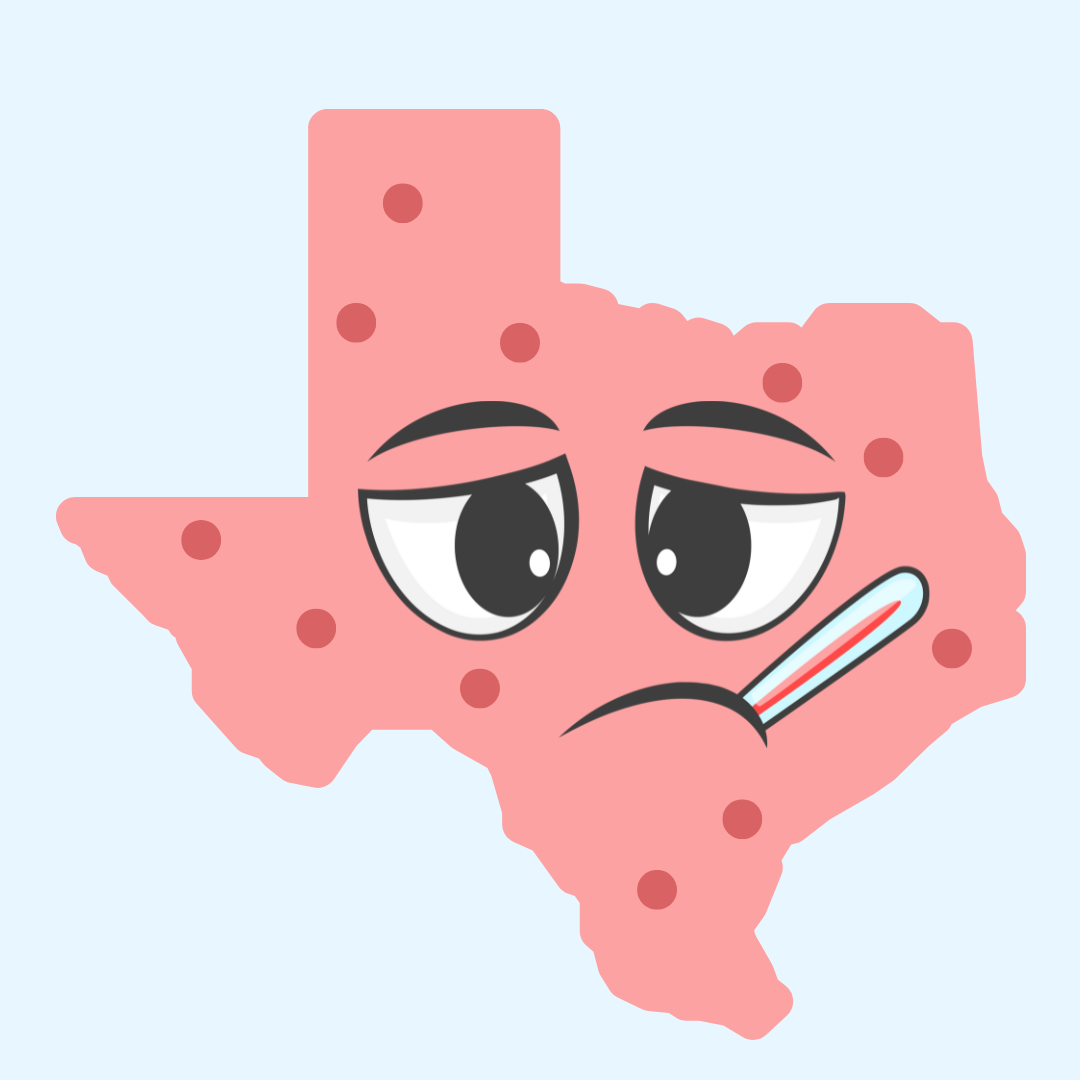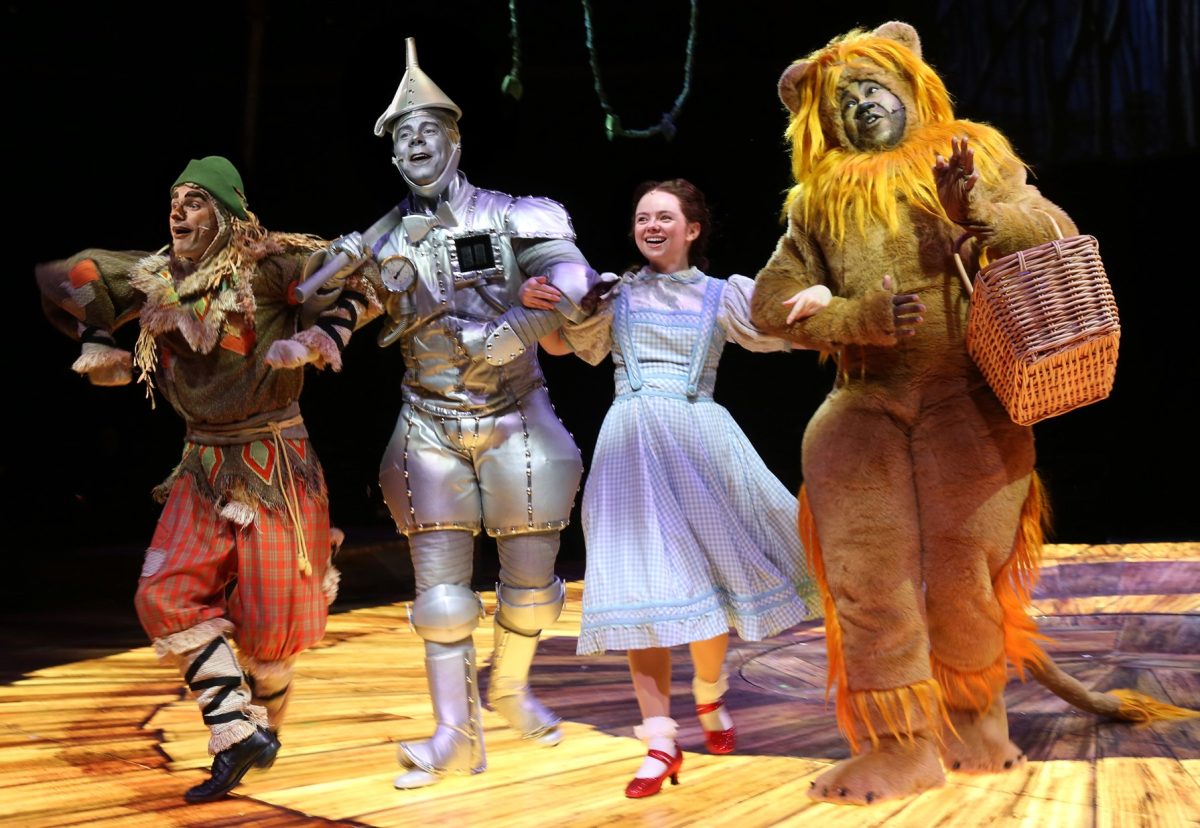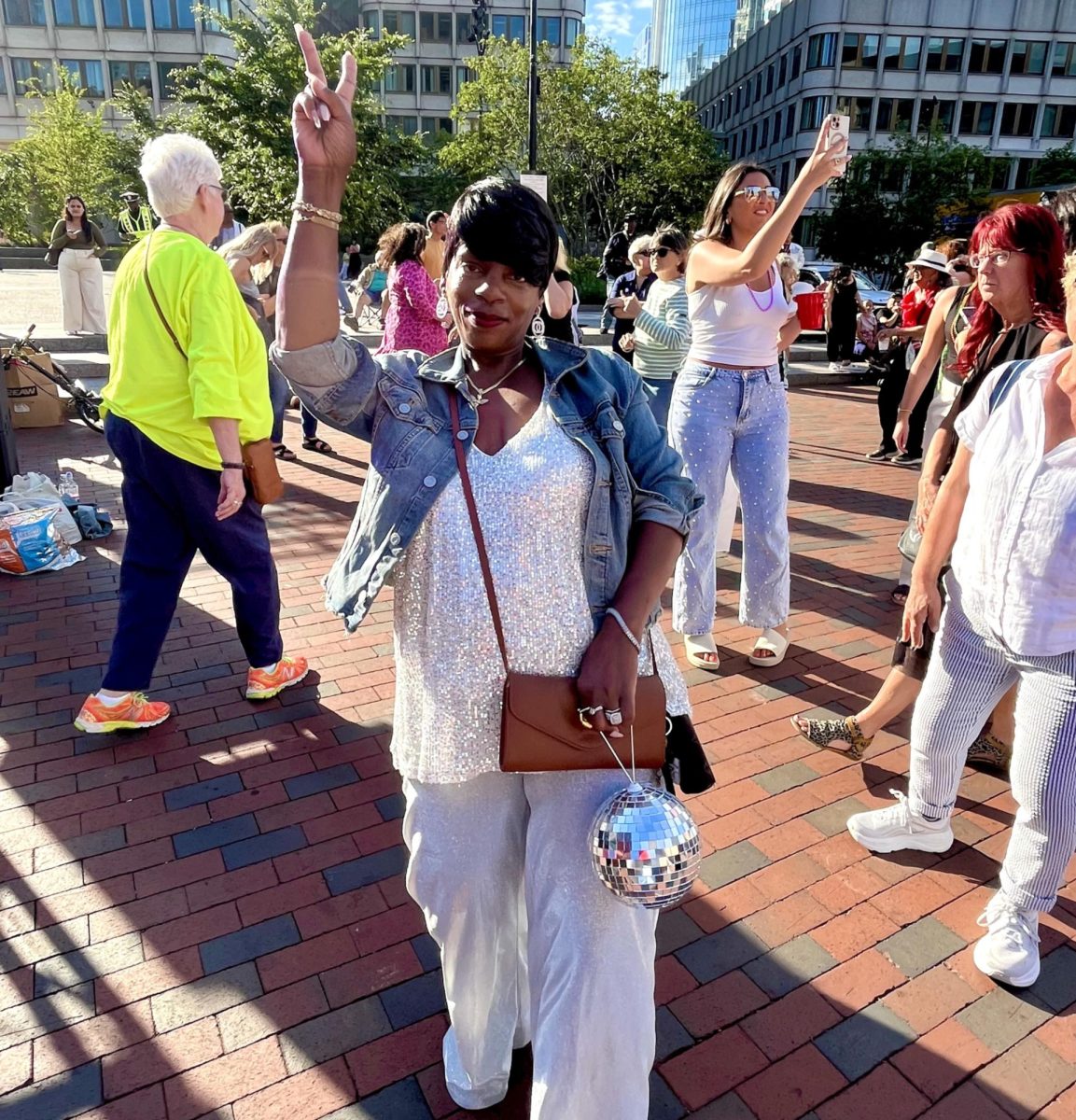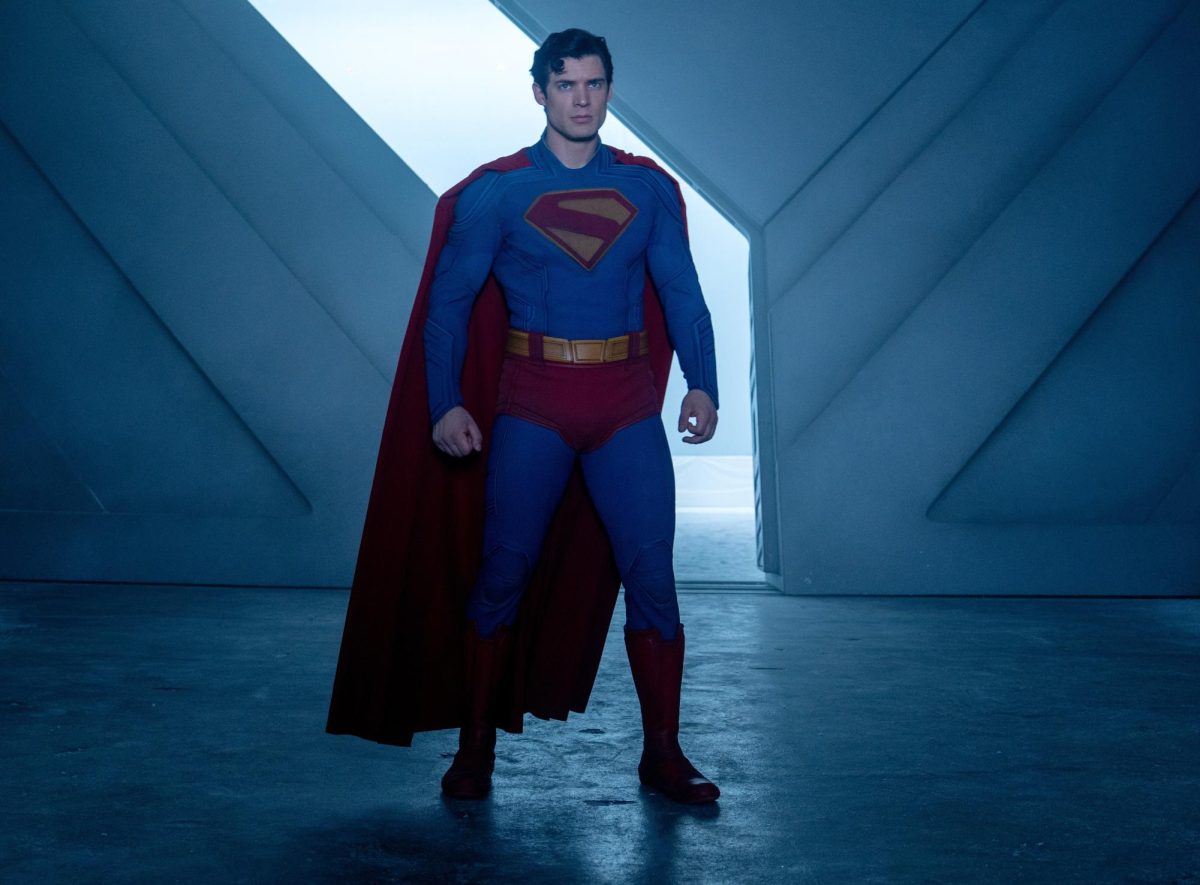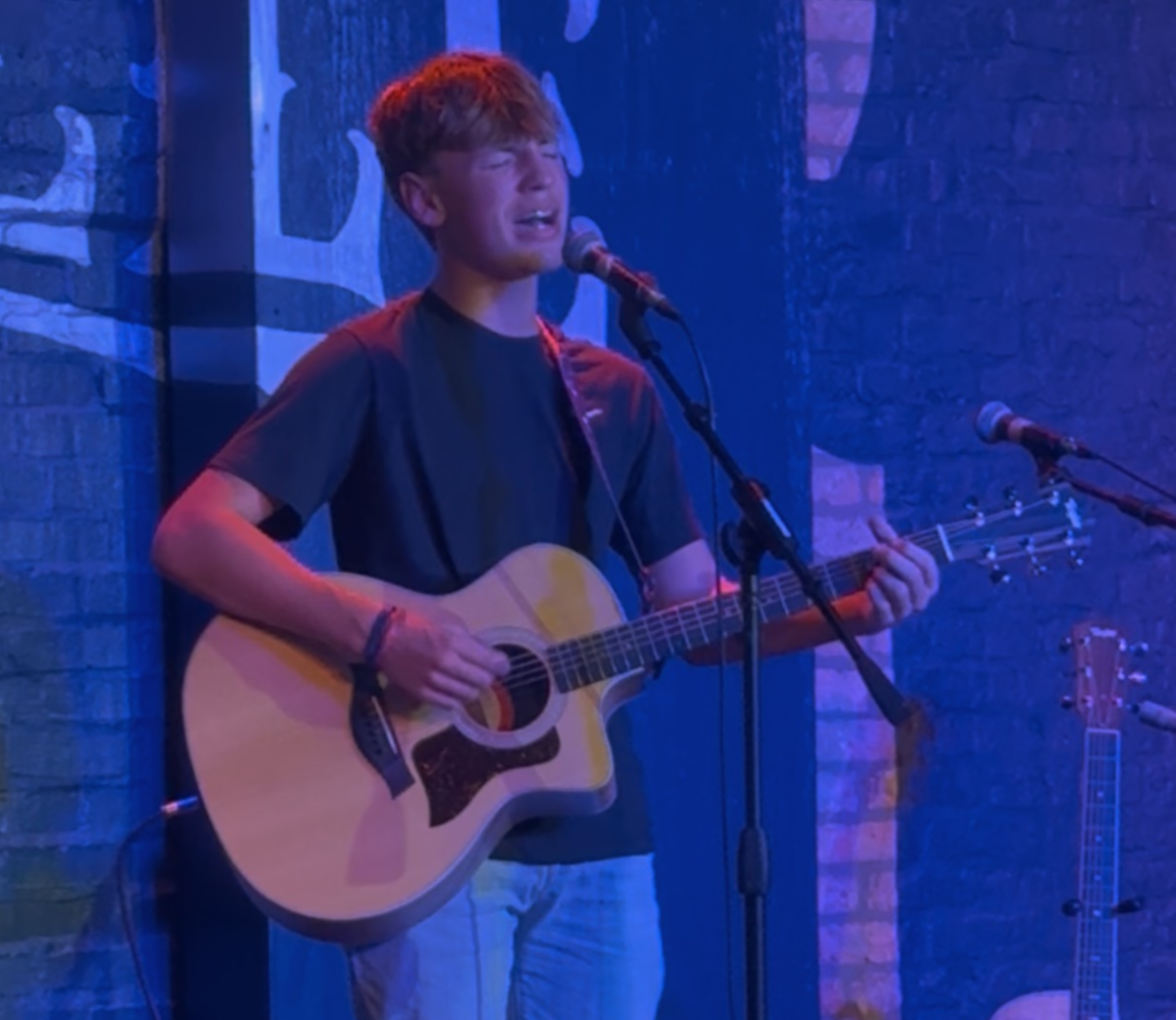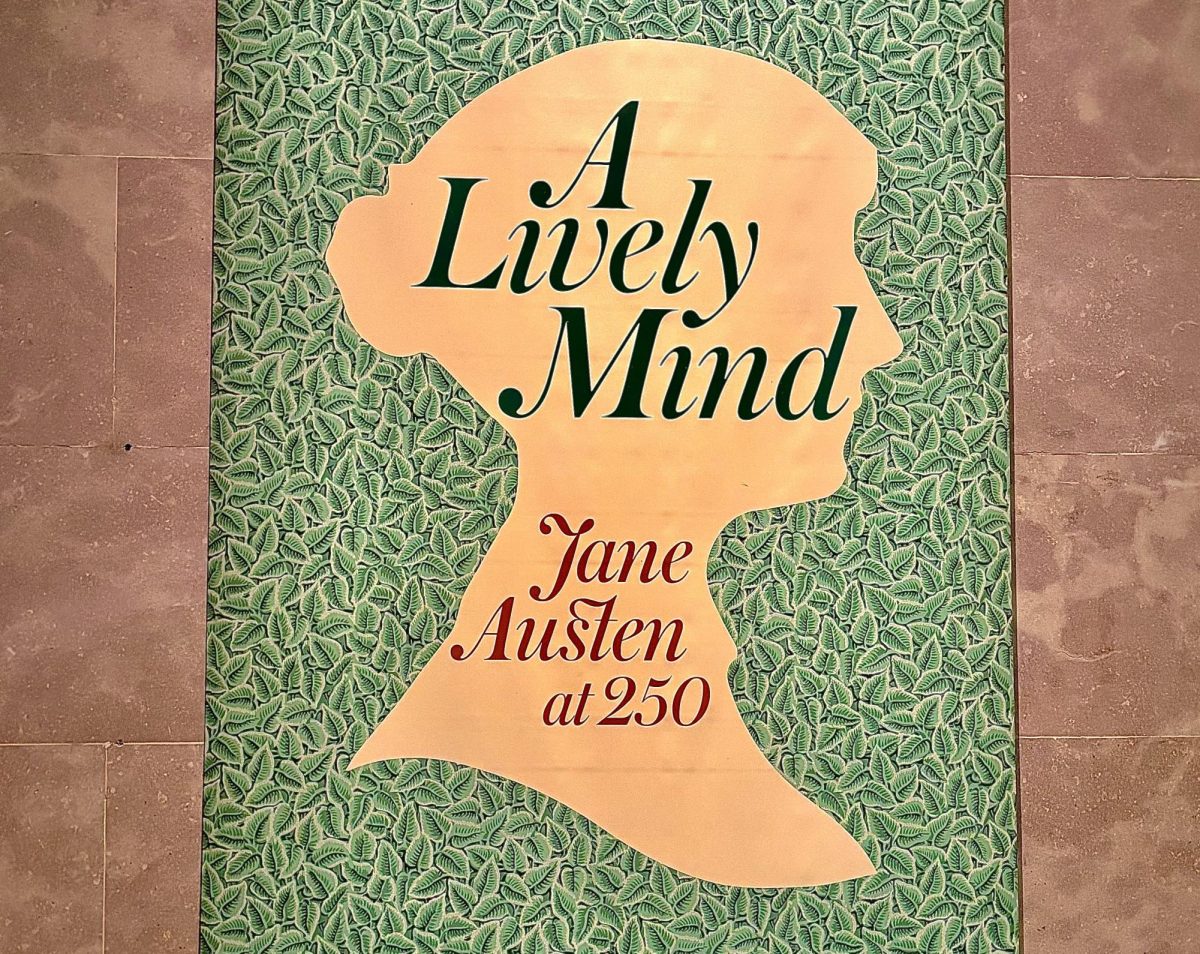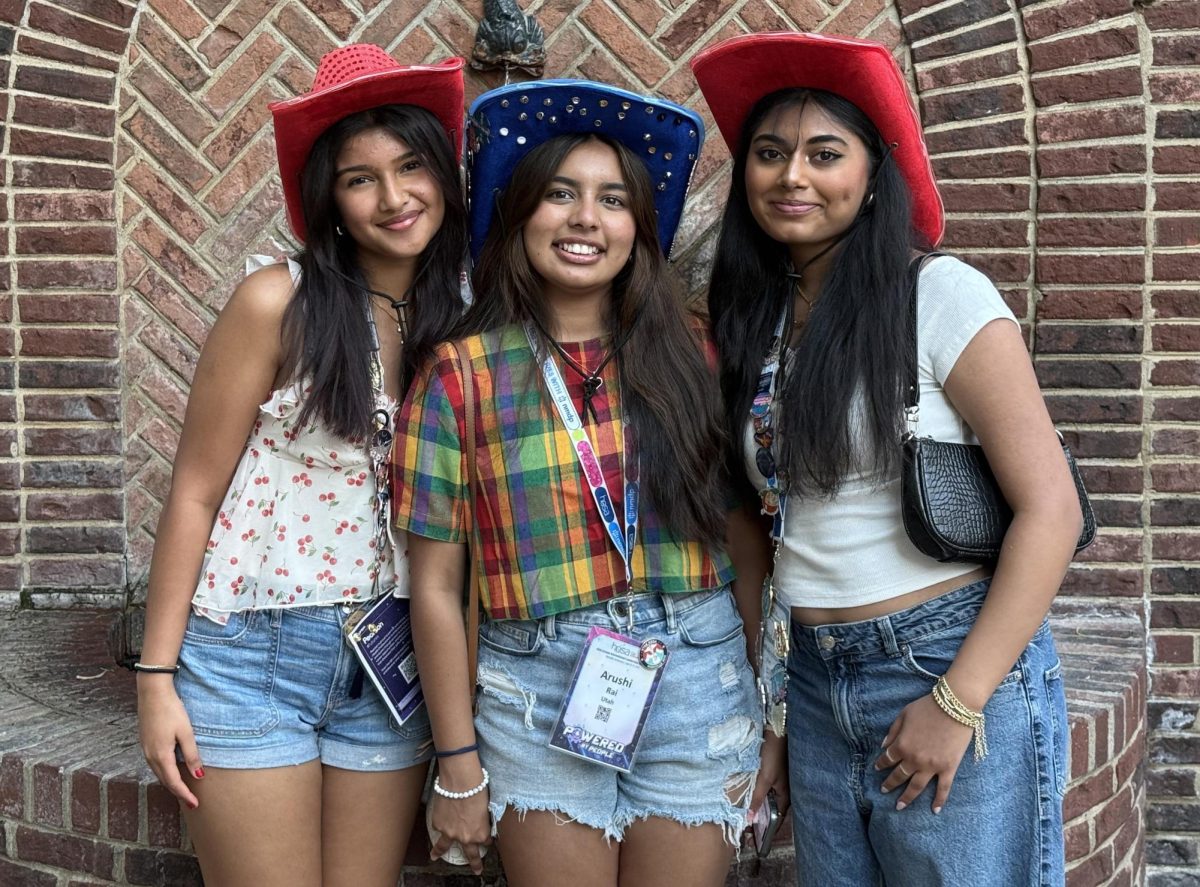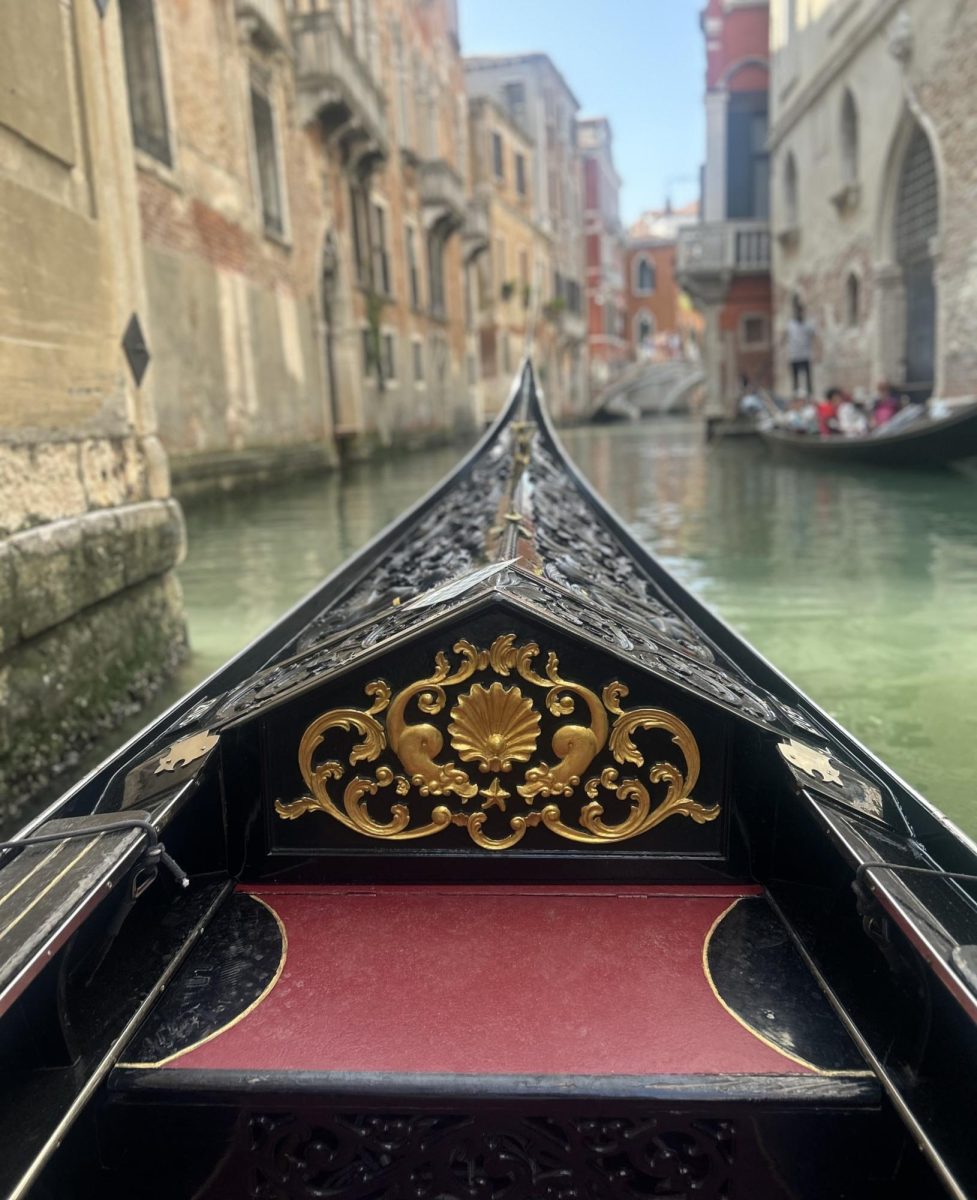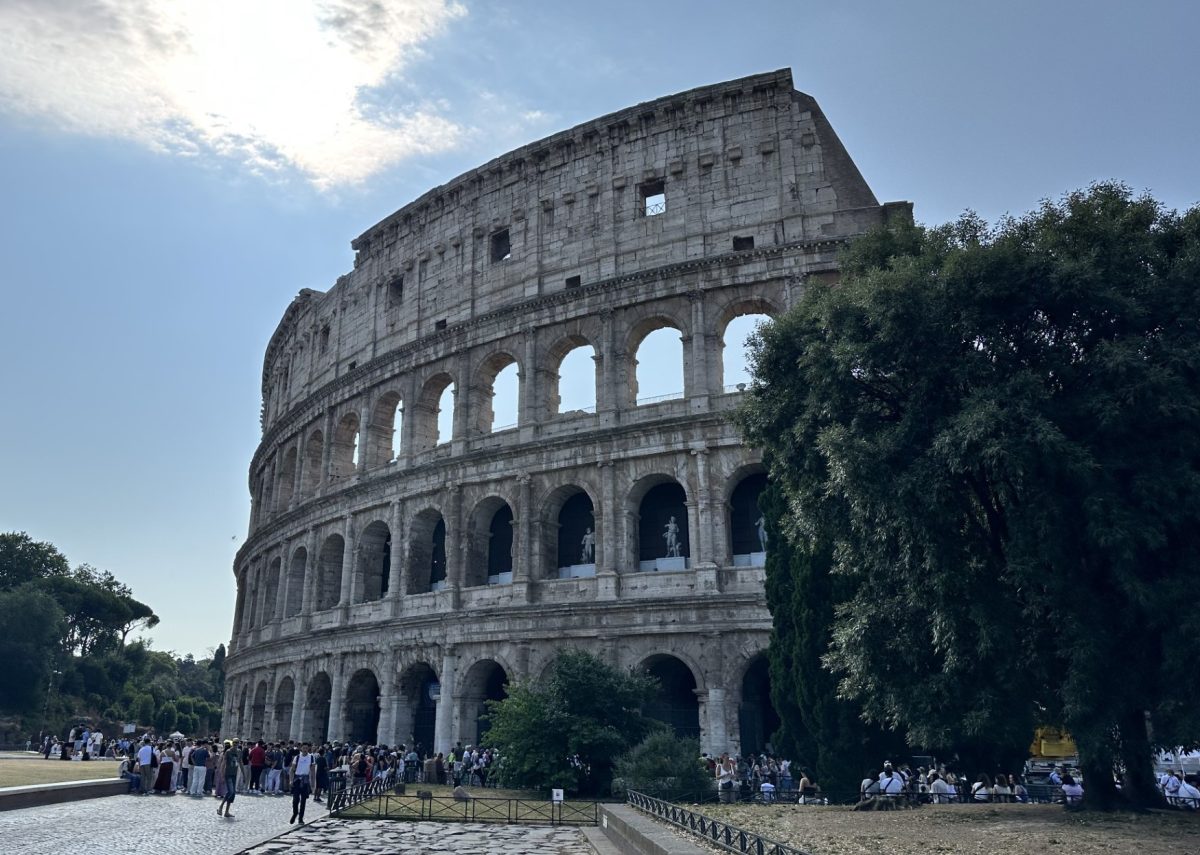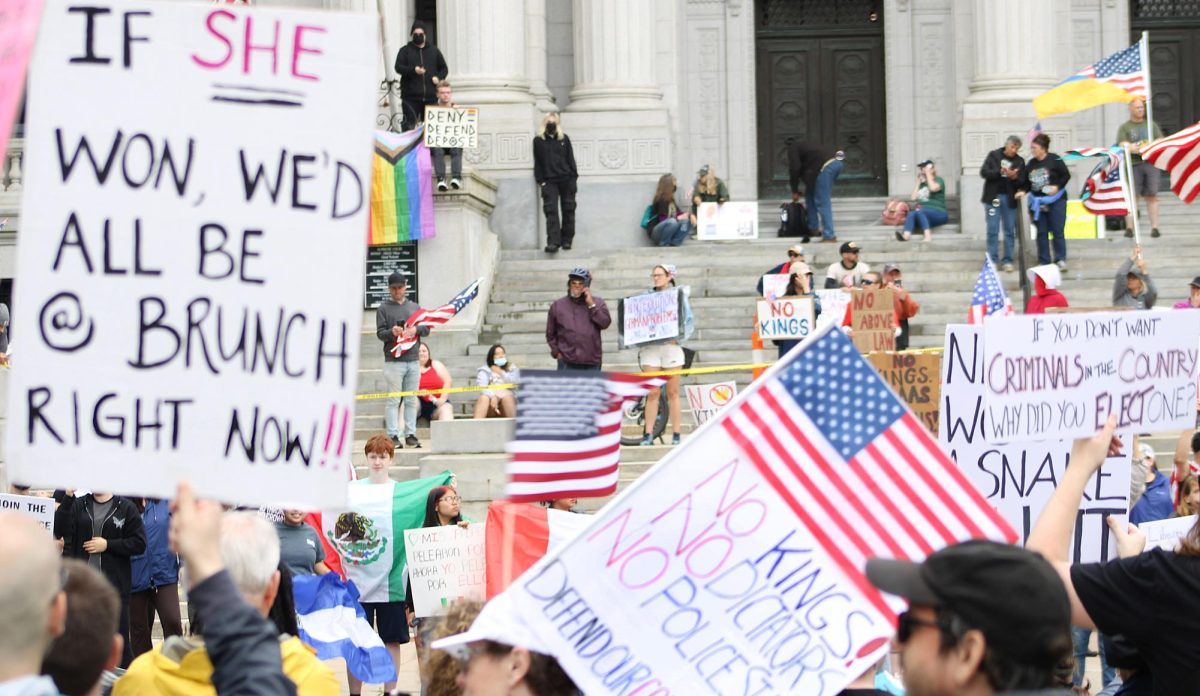African American students report unwanted hair touching
Taishawna Davis from the Sequoyah Scribe at John Sevier Middle School in Kingsport, Tenn., was a winner in Headliners in Education’s February 2023 contest for Best Story of 2022
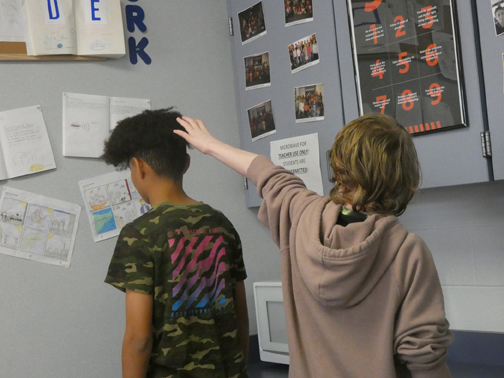
Sariah Dehenaut / John Sevier Middle School
A CURIOUS ACTION. Two Sequoyah Scribe models illustrate a common problem at Sevier Middle School; students touch African American students’ hair without their permission. Many believe this is an invasion of privacy.
March 9, 2023
(Taishawna Davis from John Sevier Middle School in Kingsport, Tenn., was a winner in Headliners in Education’s February 2023 contest for Best Story of 2022. Read the original story in the Sequoyah Scribe HERE.)
Students who wander the halls of Sevier Middle each have their own sense of style. Every single person has something that makes them unique. Some students, however, have not been respecting others’ personal space. The style of some African American students, particularly their hair, often attracts unwanted attention.
Many students ask to touch African American students’ hair because of their curiosity. Some African American students, however, do not want their hair touched because it is a violation of their space. 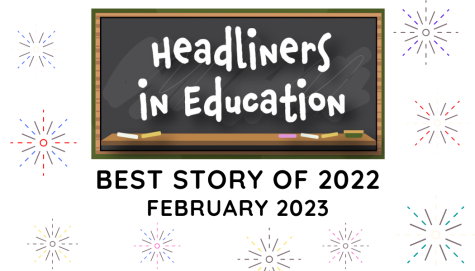
“If you just come up to me and touch me, then my privacy is being invaded,” seventh grade student Lela Cathey said. “If you ask me, that’s a different story.”
Some African American students may deal with this frequently because other students believe that their hair is unique.
Mya Adams, a Caucasian student, believes that some find African American hair so interesting because it is different and takes so much effort.
“To me, hair is so special and absolutely beautiful,” she said. “It has a different texture and can be styled differently as well.”
Sade Wilson is a substitute teacher. She, too, has seen students touch hair without permission.
“Their curiosity and ignorance causes them to do so,” she said.
Most African American students simply don’t want their hair touched without permission.
“Many times they have touched my hair,” eighth-grade student Tiesha Turner said. “It does bother me because they don’t have my permission to touch me and it is annoying.”
Many African American students are tired of others touching their hair repeatedly; students may want to touch it out of curiosity, but that does not give them the right to invade someone else’s space.
Personal space is a key problem for all middle school students because it can cause problems and conflict in the halls or in class. Many teachers have to deal with student conflict because of unwanted touching, and not just hair.
“People come up to me and smack my butt in the hallway,” Abby Crawford, a seventh grade student, said. “Just don’t.”
Throughout history, some African Americans have straightened their hair to “blend in” with Caucasians. They straightened their hair rather than letting it flow naturally. Now, they do that less. In return, they now get unwanted attention.
“I think it’s ridiculous that we have to go out of our way to fit in,” Turner said.
There are those people who claim that hairstyles may be disruptive.
Sade Martin, a substitute teacher at JSMS disagrees.
“It is not disruptive; it’s hair,” she said. “If other body hair, like lashes or arm hair, isn’t disruptive, then how can head hair styled a certain way be disruptive?”
There is no doubt that African American students receive attention for their hair that some do not want. But although they say to not touch their hair, other students keep doing it. Some students act like it is funny or just a joke when they go against somebody’s boundaries or personal space, but it’s actually harassment.
According to the Kingsport City Schools Student Handbook “behaviors that may constitute sexual harassment include, but are not limited to […] pinching, grabbing, and […] other verbal, physical, or visual actions”.
In other words, touching somebody without their permission is against school rules.
“Yeah, it should be against the rules,” seventh grade student Hayden Wyatt said. “People come up and touch me and I don’t like it.”
Caucasians may not know the history of African American hair. Hair is important to the African American community because, for years, that is how they have expressed themselves.
According to the African American Registry, “Blacks in America have used their West African roots and their own artistry to create styles and standards that reflect a unique Black culture”.
Turner agreed.
“My hair is one thing that is beautiful, thick, and curly,” she said. “It defines my personality.”
Some schools have gone the extra mile and criticized African American students for not having “neat hair”.
According to “ChalkBeat”, a public elementary school in suburban Atlanta displayed several photos of black children, including girls with braids, to illustrate ‘inappropriate’ haircuts in 2019.
Before that, in 2018, a referee in New Jersey forced a 16-year-old mixed-race wrestler to cut his dreadlocks or forfeit his match.
“I think it’s really stupid, because our hair doesn’t just slick back, there are many struggles to even get it in a ponytail,” Turner said.
Although some schools across the nation have targeted students for their hair, there have been no incidents of Sevier Middle requiring “neat hair”.
Given the historical importance of African American hair, the fact that some schools require neat hair, and even that African American hair care products are often locked up, it is no wonder that some students get frustrated when a random person walks up to them and messes with their hair. The issue is deeper than “just” hair.
Several states have even passed the CROWN act, a law that prevents discrimination based on hair texture and styles such as braids, locs, twists, and knots in the workplace and public schools.
In the end, respecting personal boundaries is key.
“Please be respectful and think of how you can affect others before you do something,” Adams said.
Martin agreed.
“Our differences should not be villainized, criminalized or deemed inappropriate,” she said. “Everyone should educate themselves about other cultures.”
–Originally published May 10, 2022–

